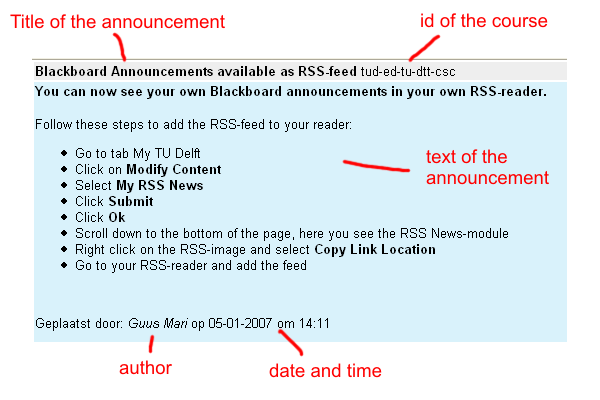On request of some users, hereby some more information about the Announcements2RSS building block. The building block is originally developed by Avans Hogeschool and adjusted by me to fit our needs.
The building block delivers your personal announcements as a RSS-feed. The administrator has to create a new portal module of the type "My News" and set the availability. The next thing is to configure the module. The important item is to set the id of course/community that should be included; this course/community can be set unavailable.
If a user selects an item to view in his RSS-reader, it shows a special page of the building blocks as shown in the image below.

The building block will be made available to others in the near future as open-source building block. We have to sort some things out. before.
 Aanstaande dinsdag sta ik samen met Karel Roos op de
Aanstaande dinsdag sta ik samen met Karel Roos op de 